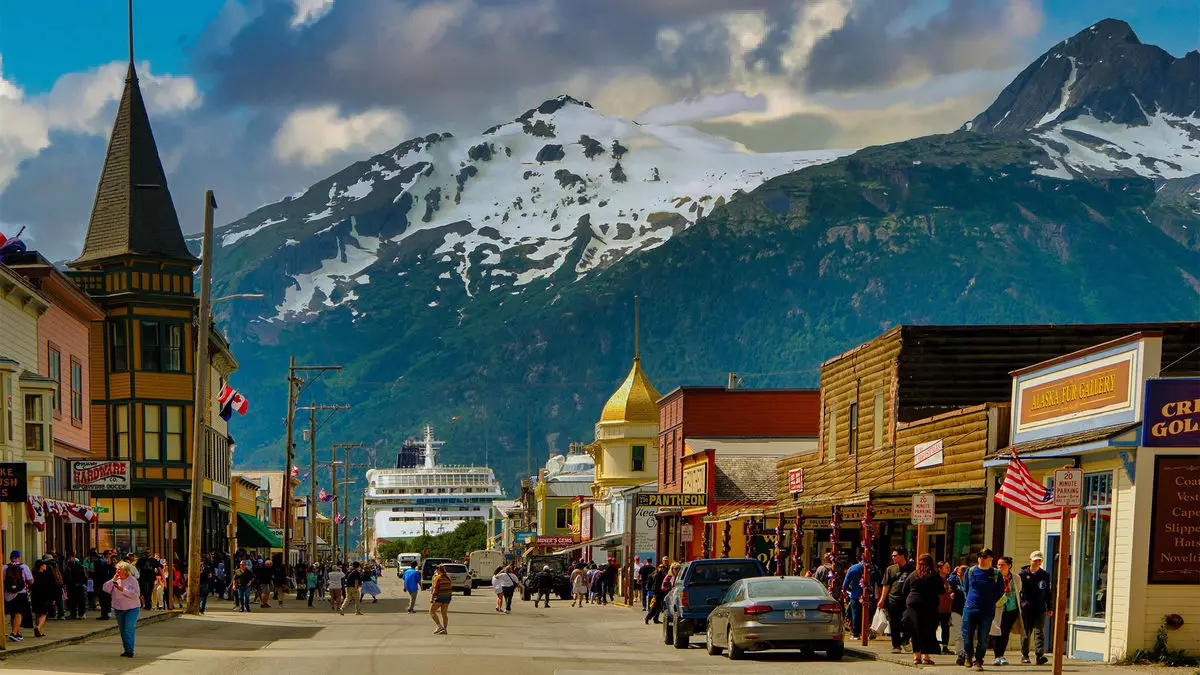In a bold move that has stirred the waters of the cruise industry, Skagway, Alaska, recently implemented a new taxation model for shore excursions that has drawn sharp criticism from the Cruise Lines International Association (CLIA). Previously, the borough taxed only the base price of these excursions, but the latest change requires cruise lines to pay taxes on the entire ticket price, including commissions. This fundamental shift, officially passed by the Skagway assembly in December, has prompted CLIA to file a lawsuit, claiming that the tax is not just unfair but also unconstitutional.
Economic Implications
Skagway, a picturesque town dependent on tourism, particularly from cruise ships, faces an economic dilemma. With estimates suggesting that about one million cruise passengers flock to Skagway annually, the town has relied on this influx of visitors to sustain local businesses and generate employment. Advocates for the tax argue that it will provide essential revenue to support local infrastructure and services. However, this perspective does not consider the potential fallout from imposing higher taxes on the cruise industry, which might result in reduced visitation, thereby threatening the very livelihoods that the town seeks to protect.
Legal Battles and Industry Concerns
In the lawsuit initiated by CLIA on May 8, the industry’s stance is clear: they consider the tax legislation to be “duplicative,” asserting that it infringes upon constitutional rights and contravenes Alaska state law. CLIA contends that the cruise industry has long been a vital contributor to Skagway’s economy, creating jobs and supporting small businesses through collaborative efforts. Nonetheless, this taxation policy could jeopardize those established relationships, risking the economic stability of both the cruise lines and the town itself.
Precedents and Wider Ramifications
This legal conflict in Skagway is not an isolated incident. A similar tension is brewing in Hawaii, where a newly instituted 11% tax on docked cruise ships has sparked threats of litigation from CLIA. Such a trend raises critical questions about the future relationship between states and the cruise industry. The Tonnage Clause of the U.S. Constitution specifically prohibits states from taxing shipping tonnage without congressional approval, and both Skagway and Hawaii may find themselves embroiled in protracted legal disputes that could reshape the taxation landscape for the tourism sector.
Future of Cruise Tourism in Alaska
The outcome of the Skagway lawsuit will likely have implications that extend beyond its borders, affecting how other municipalities engage with the cruise sector. If tourism continues to be taxed in ways deemed unfair by industry representatives, it could lead to a downturn in cruise business, prompting cruise lines to seek alternative ports that offer more favorable conditions. As Skagway navigates this tumultuous period, it poses a fundamental question: how can towns reliant on tourism balance the need for revenue with the health of the industry that sustains them? The answer may determine the future trajectory of cruise tourism in Alaska and beyond.


Leave a Reply